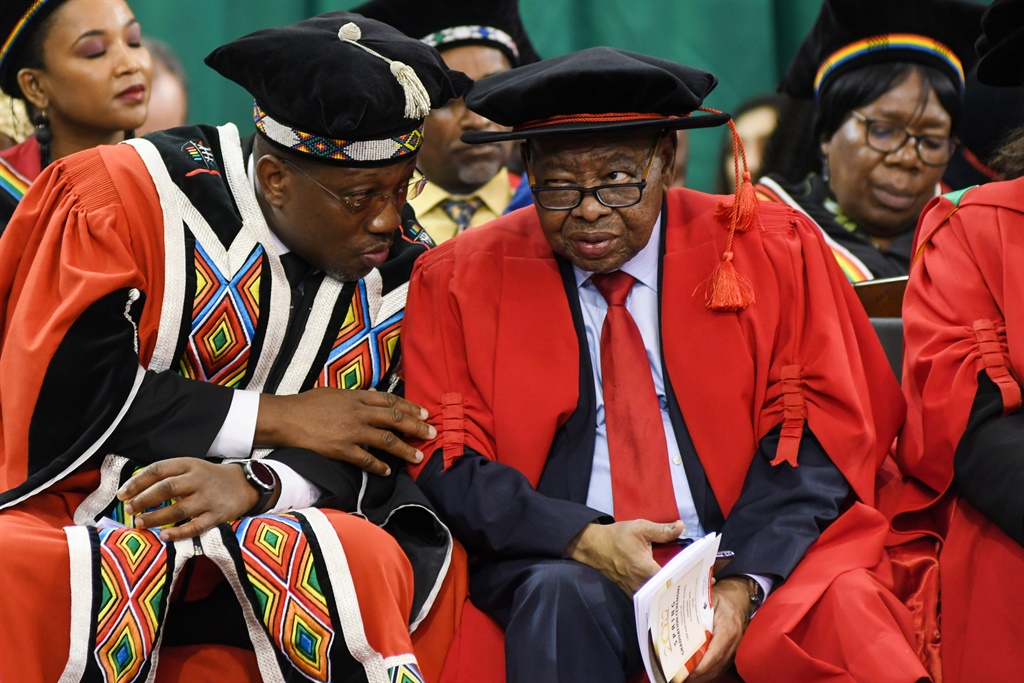
Universities have been asked to not over-enrol students in the current academic year so that the system won’t be under strain.
Minister of Higher Education, Science and Technology Blade Nzimande confirmed this during a media briefing at the Government Communication and Information System office in Pretoria today.
Nzimande was detailing the implications that the 2019 matric results would have on the higher education sector and focused on the availability of spaces and opportunities at 26 universities and 50 public technical and vocational education and training (TVET) colleges.
Last week, Basic Education Minister Angie Motshekga released matric results for the 2019 academic year.
Not over-enrolling, Nzimande said, would ensure that the current infrastructure and available human resources would be adequate for the numbers of students in the system. This would also affect the quality of teaching and learning and the sustainability of the university system.
This was part of the new enrolment plan for universities from 2020 to 2025, which has been completed.
“All universities were required to consider their enrolments in terms of the fiscal realities and constraints, and to plan realistically, making sure that the enrolment numbers targeted resulted in the optimum number of new students entering the system for the first time in 2020, being fully supported through available infrastructure and sufficient qualified lecturers and academics, and within the constraints of the funding available for bursaries for poor and working-class students,” Nzimande said.
The enrolment plan, he said, provided enrolment targets for all fields of study, and specifically for those scarce skill fields that supported the country’s growth, such as engineering sciences, life and physical sciences, animal and human health sciences, and teacher education.
This year, he said, universities would provide access to about 201 042 new entrants wishing to pursue studies across general, technical and professional fields, including business and management, science, engineering, agriculture and technology, humanities, social sciences, the arts and education.
Nzimande said of the 201 042 new entrants, 66 764 students will be enrolling in the following programmes:
- Engineering – 16 152;
- Life and physical sciences – 16 948;
- Human and animal health. The allocation will be as follows: 906 in animal sciences, 9 796 in human health and 210 in veterinary sciences; and
- Teacher education – 22 752
“It is important to realise that entrance requirements into university studies is linked to the academic achievements in the National Senior Certificate (NSC) [also referred to as matric]. While the minimum requirements to achieve a bachelor’s, diploma, or higher certificate pass in the NSC is set in policy, individual institutions and programmes set specific entrance requirements. This means that a person with a bachelor pass may not necessarily meet the requirements for entry into particular degree programmes. This is usually influenced by the academic demands and specialities required in various programmes and or number of spaces available,” he said.
He said the department supported universities in discouraging walk-ins – a decision taken after the death of a student during a stampede at the University of Johannesburg in 2012.
At TVETs, he said 226 685 new entrant opportunities would be provided by these colleges, of which 156 800 would be available for students interested in studying towards a national diploma in engineering, general or business studies.
He said the National Student Financial Aid Scheme (Nsfas) had received a record-breaking number of applications by the closing date of November 30 last year.
“More than 543 268 first-time applications (prior year 428 929) were received from applicants across the country, with the majority of the applicants submitting applications online.”
About 430 000 have been approved for Nsfas funding.
At least 212 000 returning students, he said, were eligible for this academic year’s funding.
 | ||||||||||||||||||||||||||
Msindisi FenguJournalist | City Press | ||||||||||||||||||||||||||
| ||||||||||||||||||||||||||
| Rise above the clutter | Choose your news | City Press in your inbox | ||||||||||||||||||||||||||
| City Press is an agenda-setting South African news brand that publishes across platforms. Its flagship print edition is distributed on a Sunday. |




 Publications
Publications
 Partners
Partners








